Annual Report 2019

Annual Report 2019
The Contact Point will help resolve cases of compliance with the OECD guidelines, and make the guidelines known

In 2020, it will be 20 years since the national contact point system was introduced. This must be recognised and celebrated, but how far have we actually come?
We live in a time where businesses are faced with strong expectations to take responsibility for their impact on people, society and the environment. The development has skyrocketed over the past decade. The OECD Guidelines for Multinational Enterprises and the UN Guiding Principles on Business and Human Rights are at the essence of this development. Acknowledging that the Sustainable Development Goals cannot be achieved without the business sector respecting human rights and demonstrating responsible business conduct is one aspect of this.
Our survey from 2019 concerning the status for the implementation of the OECD Guidelines in Norwegian businesses shows that there is nonetheless a fair way to go. The business sector has little knowledge about the OECD Guidelines and it could be questioned just how deeply embedded due diligence really is. However, changes for the better are also taking place.
In the new ownership policy report to the Storting from 2019, the Government is clear that state-owned companies must be at the forefront of the work on responsible business conduct, and that responsible conduct is a condition for the highest possible return over time. It is crucial that the state as owner now takes the lead and spearheads this work. The UN Working Group on Business and Human Rights also expects the state as owner to lead by example.
Many countries are establishing new and binding legislation on the basis of the OECD Guidelines and the UN Guiding Principles. The same is about to take place in the EU. The Ethics Information Committee’s proposal for a new act relating to transparency in the supply chain and the duty to acquire knowledge and perform due diligence will do the same in Norway. The OECD Guidelines and the UN Guiding Principles finding their way into binding legislation is an important and necessary development that will strengthen the effectiveness of expectations for responsible business conduct.
The NCPs have played, and continue to play, an important role in the work on promoting the OECD Guidelines. Since the very beginning, Norway’s NCP has made active efforts to raise the profile of the Guidelines. Although we have come far in this process, much work remains. The annual report shows that Norway’s NCP has been busy in 2019 and we are planning at least as much activity in 2020. However, we can only succeed if this work takes place in cooperation and interaction with others. Major government initiatives are still necessary, as are efforts on the part of businesses and civil society.
Today, there are NCPs in 49 countries. The NCPs are also grievance mechanisms. Through the 20 years the system has existed, the NCPs have handled more than 500 cases. The grievance mechanism is unique and has led to some extraordinary results.
In the case concerning the rights of former employees of the Congolese Heineken company Bralima, the Dutch NCP negotiated an agreement that granted the former employees extensive compensation. In the case concerning working conditions at facilities related to the FIFA World Cup in Qatar in 2022, the Swiss NCP brought FIFA to the mediation table and an agreement was entered into. The agreement requires FIFA to, among other things, respect human rights and establish complaints mechanisms with possibilities for workers to apply for compensatory damages. An important development is taking place in the area of the environment. In 2019, the Dutch NCP concluded a specific instance against the major bank ING, where it was asserted that the bank was obliged to set specific climate targets for its portfolio in line with the goals of the Paris Agreement. ING agreed to this.
In 2013, Norway’s NCP handled a specific instance against NBIM, which administers the Government Pension Fund Global, where it was determined that the OECD Guidelines, including the obligation to conduct due diligence, also apply to investments in companies in which the fund only has a small minority shareholding. We assume that this has contributed to more responsible administration of the fund, and the case also provided the momentum for the OECD’s work on developing guidance documents for the financial sector. Norway’s NCP has also handled complaints against Norwegian enterprises relating to the environment, indigenous rights and employee rights.
The NCP today is a well-established system with significant potential. Even if new legislation is adopted, the OECD Guidelines and the possibility of filing complaints with the NCP concerning a company’s lack of compliance remain essential tools to achieve increasingly responsible business conduct. The NCP’s work on a specific instance will be based on dialogue and mediation. The main purpose is to arrive at a solution that enables the company to manage the future risk of violations. If a violation has occurred, the NCP cannot order the company to pay compensation, but must suffice with making a statement that this should have been done. The matter of strengthening the NCP’s possibility of imposing sanctions should be considered in new legislation relating to responsible business conduct.
There is much work to be done. A prerequisite for success is is to further raise the profile of the Guidelines and the NCP system. We hope that our marking of the twentieth anniversary will contribute to this.
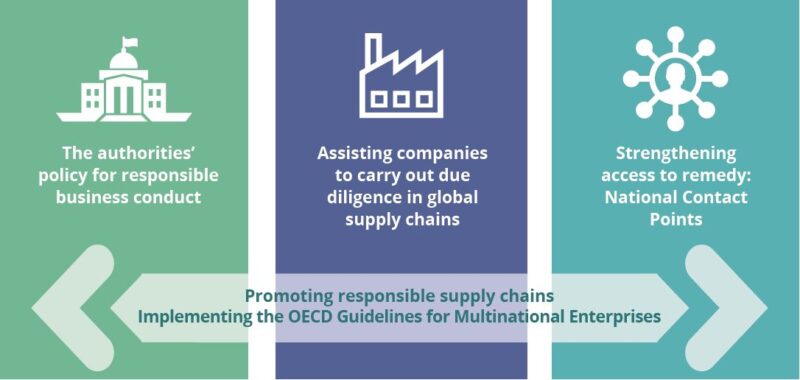
The OECD Guidelines for Multinational Enterprises are the only multilaterally adopted, comprehensive guidelines for responsible business conduct backed by 49 governments.
The Guidelines are recommendations from the OECD countries to promote responsible business conduct in all sectors. A main goal of the OECD Guidelines is that the business sector should contribute to sustainable development. The Guidelines express clear expectations of due diligence in the business sector in areas such as human rights, labour rights, the environment, anti-corruption and transparency. Seen as a whole, the Guidelines cover all the important areas that a responsible business needs to address. A core element of the OECD Guidelines is that companies are expected to perform due diligence to avoid causing harm to people, society and the environment.
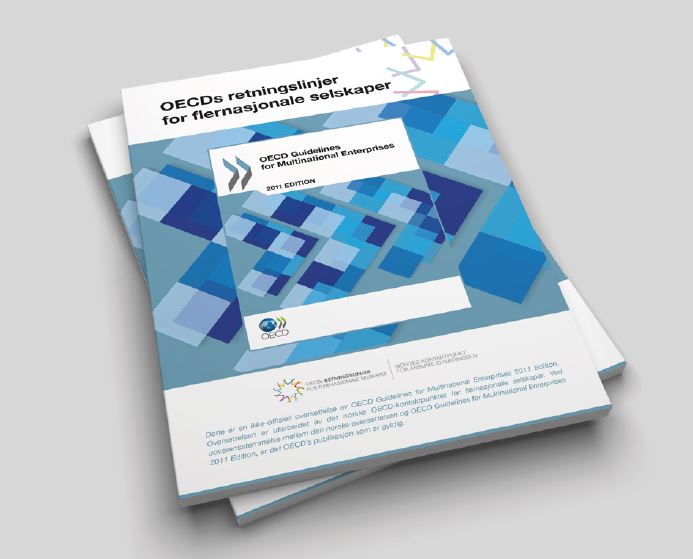
The Guidelines are supported by a unique implementation mechanism of national contact points (NCPs). The NCPs were established by the adhering governments to raise awareness about the Guidelines and to establish a grievance mechanism, ensuring that concerned stakeholders have a place to turn to. The NCPs facilitate dialogue and mediation in order to resolve specific instances.
According to the OECD Guidelines, enterprises shall contribute to the following:
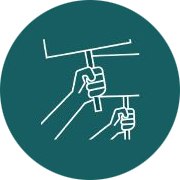
human rights

the environment

labour rights

corruption
The Guidelines also contain chapters on disclosure,consumer interests, science and technology,competition and taxation.
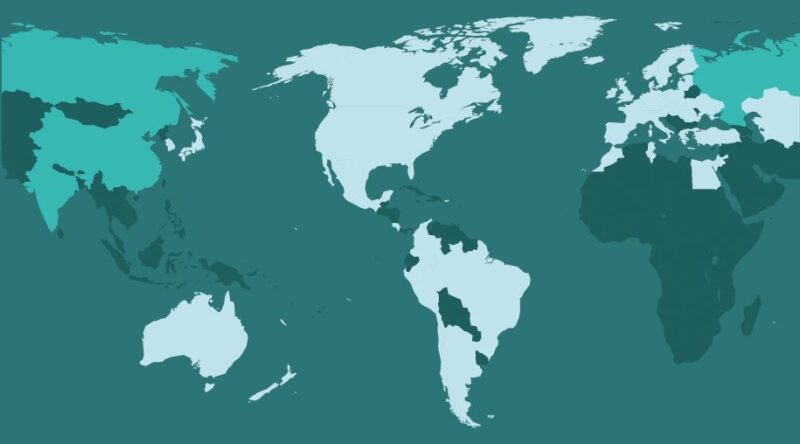
Countries with contact points:
Argentina, Australia, Austria, Belgium, Brazil, Canada, Chile, Colombia, Costa Rica, Czech Republic, Denmark, Egypt, Estonia, Finland, France, Germany, Greece, Hungary, Iceland, Ireland, Israel, Italy, Japan, Jordan, Kazakhstan, Croatia, Latvia, Lithuania, Luxembourg, Mexico, Morocco, The Netherlands, New Zealand, Norway, Peru, Poland, Portugal, Romania, Slovakia, Slovenia, South Korea, Spain, Sweden, Switzerland, Tunisia, Turkey, UK, Ukraine, USA
Observer countries:
India, China, Russia

The NCP system was established in 2000 and is marking its twentieth anniversary in 2020. The NCPs have received a total of 500 complaints related to business activities in more than 100 countries and territories. Most of the cases have concerned human rights, overriding guidelines and employment, and industrial relations. In 2019, the first specific instance relating to the climate and the Paris Agreement was concluded.
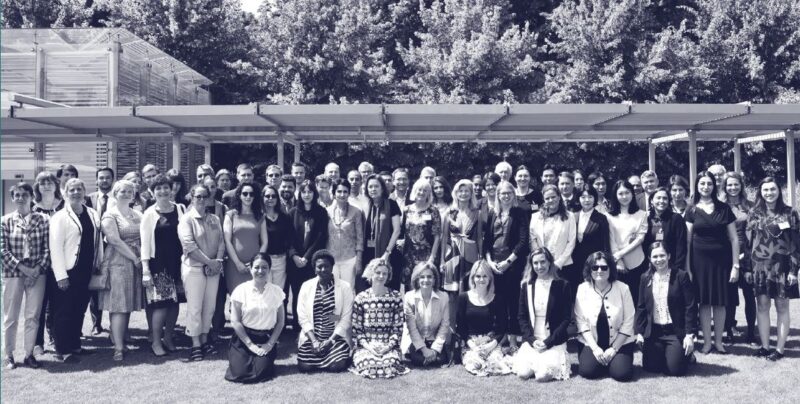
The National Contact Point for Responsible Business Conduct Norway is an independent, public expert body comprising four members. Frode Elgesem was appointed new chair of the NCP on 1 March 2019, after Ola Mestad’s period as chair expired. The members of the NCP are appointed by the Ministry of Foreign Affairs and the Ministry of Trade, Industry and Fisheries, in cooperation with the Ministry of Labour and Social Affairs and the Ministry of Finance. They are appointed on the basis of their professional expertise, and based on proposals from the social partners and civil society, represented by the Confederation of Norwegian Enterprise (NHO), the Confederation of Norwegian Trade Unions (LO) and the Forum for Development and Environment (ForUM). On 1 March, Beate Ekeløve-Slydal was elected as a new member based on a nomination by ForUM.
The NCP has a secretariat with two permanent full-time employees recruited by the Ministry of Foreign Affairs, and has had two temporary staff members in 2019. The secretariat is under the administrative authority of the Ministry of Foreign Affairs, but has a separate budget and operates independently of the Government.
The secretariat and the members engage in extensive information work and provide guidance to Norwegian businesses and other stakeholders on how they can meet the requirements of the OECD Guidelines. The secretariat also prepares the specific instances to be handled.
All OECD countries are obliged to establish a national contact point. The way in which the NCPs are organised varies from country to country.
Members

Chair,
Judge at Borgarting Court of Appeal

Partner at Footstep

Special adviser LO

Political adviser at Amnesty International

Professor dr. juris,
University of Oslo Chair until 1 March 2019
The secretariat

Head of the secretariat

Senior Advisor

Senior Advisor
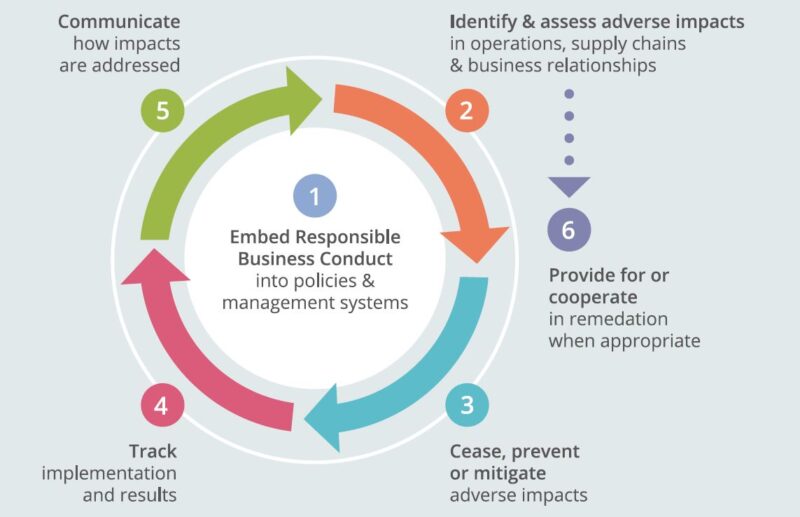
The OECD Guidelines for Multinational Enterprises expects companies to perform due diligence. The goal is to establish whether the company contributes to risk for people, society or the
environment, and how harm and negative impact are followed up and communicated to external parties. The company must look at risks arising both from its own activities and through business
associates or in the supply chain.
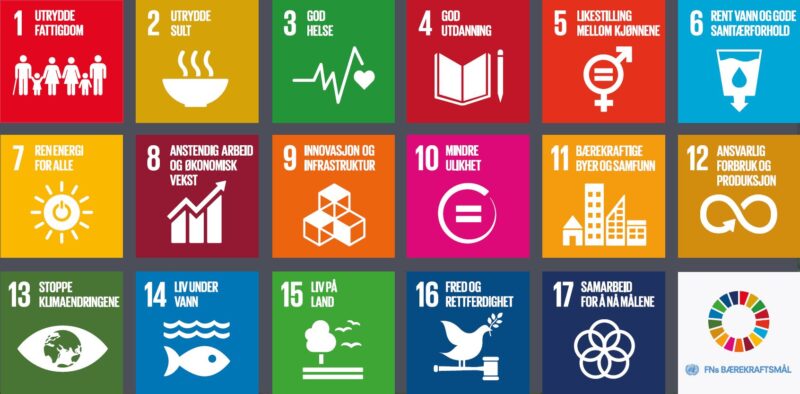
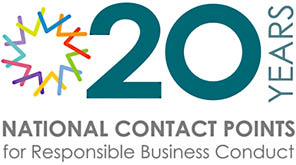
Frode Elgesem, Chair of Norway’s NCP




